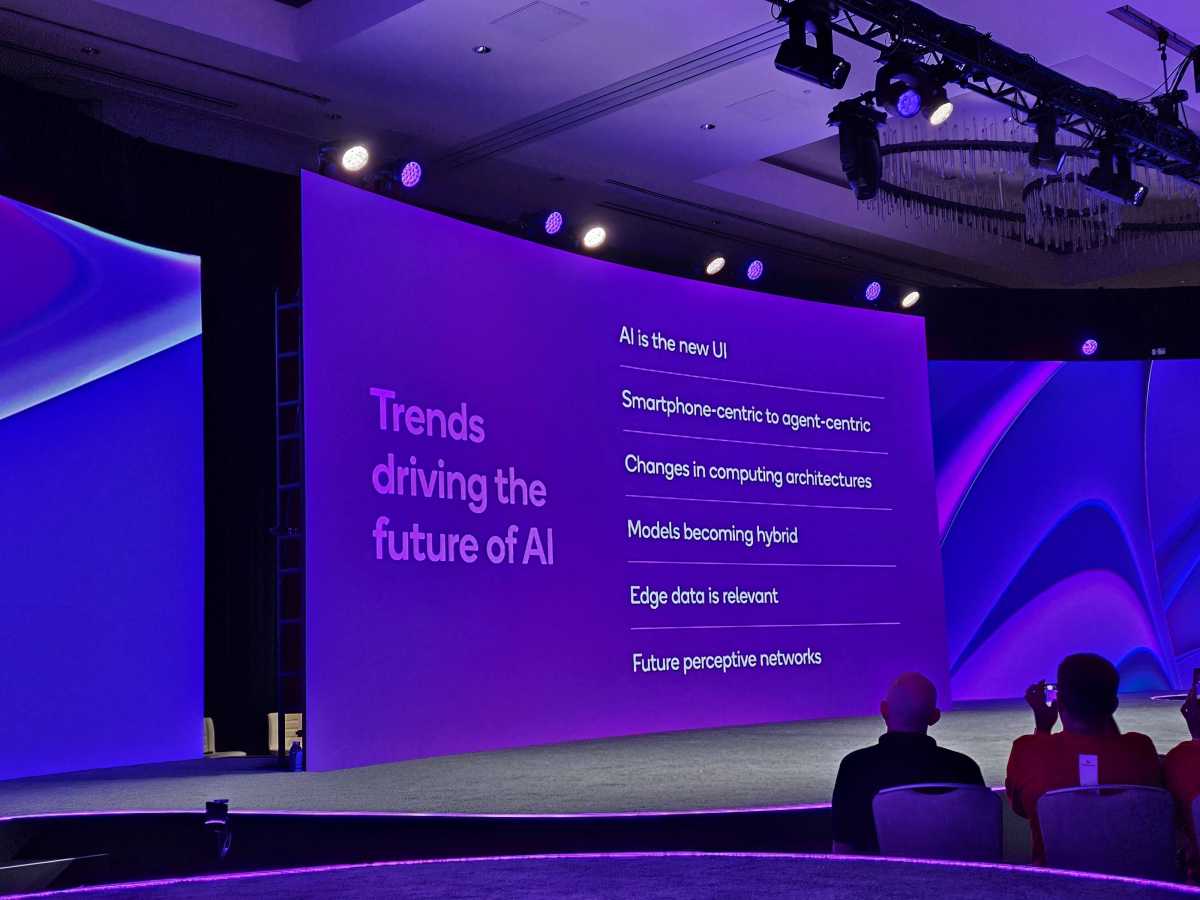Qualcomm chief executive Cristiano Amon promised a “new phase of Snapdragon,” bringing, in his words, “AI everywhere.” One key technology: the next-gen “6G” technology, which will be ready in 2028.
Google’s Rick Osterloh, senior director of devices and services, also indicated that his company was building a common technical foundation for PCs, apparently referencing an initiative to merge ChromeOS and Android.
Qualcomm is celebrating ten years of the Snapdragon Summit here in Maui, the company’s promotional conference where it presents its roadmap to customers, developers, and fans.
In 2024, Qualcomm set out to show how AI could be personalized through innovations like multimodal assistance and running large local models on the device. In 2025, Qualcomm will show you how it scales, Amon said.
The approach isn’t new; many technology companies have talked about tapping computing where it lives, both in the cloud and on the edge. Amon said that same approach will be applied to AI, so that handhelds, computers, and servers will all work together.
“AI is the new UI,” Amon said, putting AI where the user is.

Mark Hachman / Foundry
Qualcomm, which has predicted its success on its Snapdragon chips for smartphones, said that it’s expanding beyond smartphones with AI as well as silicon.
Devices like a smartwatch are just extensions of the smartphone, Amon said. As AI takes over the phone, those devices will begin to interact with the phone’s AI, he said. It’s not a great exaggeration to say that those devices could be considered agents that will work with the smartphone on specific functions. Amon called that an “ecosystem of you.”
Apps that run those devices, like glasses, will continue to evolve, Amon said. Simple applications like calendar or contacts, banking or bills, will be managed by AI. If there is a conflict, for example, the AI will resolve it.
As AI technology evolves, Amon said that he sees the models evolving as well, into a collection of tiered models at the edge, designed to allocate tasks efficiently. The cloud will ingest the data and train the model, but it will be the edge that fine-tunes its training data and then applies the model to the user’s needs.
“The amount of data will dwarf the amount of data that will train the models,” Amon said. “So that is going to be massive.”
Those models and data will need to be communicated, and Qualcomm’s work in “6G” — the evolution of 5G — is going to assume that the network itself will intelligently communicate that data. Amon said that Qualcomm will have 6G “pre-commercial devices” as early as 2028.
Qualcomm’s scenario assumes that you’ll be using a device like a smart ring or smart glasses that will recognize people, track steps, and be controllable using gestures, voice, or other means. If there’s a free moment, the AI will ask for your input on critical decisions. And that will carry over to your car, where the car’s computing platform will serve as a supplement for the computing horsepower already on your phones.
Rick Osterloh, senior vice president of devices and services at Google, joined Amon on stage.
In a talk that touched upon the first Android phones and other milestones in the two companies’ relationship, Osterloh referred to a “common technical foundation for PCs and desktop computing systems.”
“In the past, we’ve always had very different systems between what we’re building in PCs and what we’re building in smartphones, and we’re working to combine that,” Osterloh said. “And I think that this is another way that we can leverage all of the great work we’ve been doing together on our AI stack…bring Gemini models, bringing our assistant, bringing all of our application and developer community into the PC domain.”
Osterloh’s comments appear to refer back to and confirm earlier reports by Android Authority and others, which have reported that Google appears to be rewriting Chrome OS, the operating system for Chromebooks, and integrating it with Android. That effort is being referred to as “Project Aluminium,” a source said.
“We’re really excited about this,” Osterloh added. “And I think that this is another way in which Android is going to be able to serve everyone in every computing category.”
Amon appeared to imply that the two companies were working together on the project.
Qualcomm paid for my travel, airfare, and meals to travel to its Snapdragon Technology Summit. The company did not ask for or exert control over PCWorld’s content.
Source link


